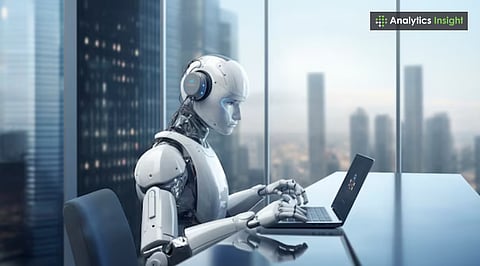

AI agents evolve from niche tools to networked collaborators.
Industries from retail to healthcare are rapidly adopting agentic AI.
Risks include security, ethics, regulation, and workforce disruption.
Artificial intelligence agents, software capable of autonomous reasoning, planning, and action, have transitioned from a research environment to actual deployment. Organizations like Salesforce already use AI agents in customer service, with bots handling almost half the interactions previously managed by humans. In software development, AI-augmented coding has advanced to the point where nearly a third of the code on some teams is written by machines.
However, even with the hype, consumers usually find agentic AI underwhelming outside niche environments. Most AI assistants remain buggy, unreliable, or too expensive for mass adoption. This connection gap between promise and reality characterizes the field’s current status: great potential, uneven execution.
Next in line are autonomy and coordination. Now, instead of working as standalone units, AI agents are made to operate within multi-agent systems. Such systems can be designed for cooperative execution, task hand-off, negotiation, and achieving sophisticated goals that one agent alone would find difficult to accomplish.
Another concept gaining traction is the Agentic Web, a massive network where agents interact across different sectors and platforms. Microsoft predicts that, by 2028, AI agents will number in the billions and engage with one another via shared protocols like the Model Context Protocol (MCP). This is the transition from siloed software to the AI networked economy.
A crucial area marked for development is contextual intelligence. AI agents will no longer deal with direct questions and commands. Instead, they will recall past interactions, set long-term goals, and manage complex procedures.
Consider a patient’s vital medicine, with an agent overseeing it for years and offering suggestions on the fly. Consider students who can be taught effortlessly from primary school to university using agentic AI.
Having more forms of input adds greater complexity. Imagine agents that could comprehend text, speech, pictures, and short clips; such agents would afford much more advanced and genuine engagements, whether as your personal shopper, travel consultant, or even your creative collaborator.
Also Read: Top 10 Use Cases of AI in Everyday Life You Didn’t Know
As AI agents become more autonomous, trust and responsibility take center stage. Who is responsible if an AI agent makes a faulty financial transaction or misdiagnoses a medical condition? The risk of abuse or unforeseen consequences is always present without proper governance.
Safety measures matter, too. Agents in contact with outside systems can be subject to exploitation or undue influence. Ethics, accountability, and the law will have to evolve as swiftly as the technology.
Equally urgent is the impact on the workforce. Salesforce’s use of AI agents has already resulted in mass layoffs in customer service sectors. While AI can open new doors in governance and monitoring, the change could be agonizing for industries that rely on repetitive, automatable tasks.
Retail is a pioneer in trending technologies. Now, luxury fashion labels are experimenting with AI stylists for in-store shopping and AI shopping agents for virtual shopping. Microsoft and OpenAI are bringing agents to consumer apps that can shop and negotiate on the user’s behalf.
In entertainment and media, AI agents are integrated into televisions and smart devices to offer customized recommendations and even design avatars. In corporate environments, agentic AI is anticipated to automate many operations, improve dealing with vast amounts of data, refine workflows, and manage customer service, all at an unprecedented scale.
Also Read: Meta’s Scale AI Investment Faces Setbacks Despite Mark Zuckerberg’s AI Ambitions
With AI agents becoming more cost-effective and reliable, technology adoption will grow exponentially over the next few years. Hybrid capabilities integrating reasoning, vision, and emotional intelligence will eliminate the gap between narrow AI tools and multipurpose assistants. Safe environments in conjunction with blockchain can give rise to self-sovereign, tamper-proof, and potentially beyond the control of corporations’ AI agents through decentralized architectures.
At the same time, regulators, companies, and users will demand more human-focused artificial intelligence to ensure that agents enhance human abilities rather than eliminate them. Minor tasks such as delivering an email or checking one’s finances will likely go unnoticed to the average user, as their assistants handle them quietly. Yet, these small changes add to a profound transformation in the relationship between humans and technology.
The path is clear: AI agents shift from experimental aids to crucial co-workers. Their development will define industries, economies, and daily life. The issue is not whether AI agents will be ubiquitous, but whether societies can contain their risks alongside their potential. The destiny of AI agents is promising and perilous, a delicate balance between innovation and regulation, autonomy and responsibility.
Q1. What are AI agents?
AI agents are autonomous systems that can reason, plan, and act on tasks, interacting with humans and digital environments to deliver personalized, context-aware outcomes.
Q2. How are AI agents different from chatbots?
Unlike rule-based chatbots, AI agents adapt dynamically, remember context, collaborate with other agents, and handle multi-step workflows across domains, making them far more powerful and versatile.
Q3. Which industries will benefit most from AI agents?
Healthcare, retail, finance, education, and enterprise operations will see the greatest impact, with agents enabling efficiency, personalisation, automation, and decision-making at scale.
Q4. What are the key risks of AI agents?
The main risks include unreliable outputs, security vulnerabilities, ethical concerns, regulatory challenges, and potential workforce disruption if adoption outpaces oversight and reskilling.
Q5. What is the long-term future of AI agents?
By 2030, billions of interconnected AI agents will form an “Agentic Web,” acting as personalized collaborators, industry optimisers, and autonomous actors shaping daily life.
